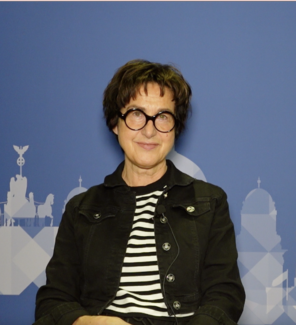TAR-200 for BCG-Unresponsive, Papillary-Only High-Risk Non-Muscle Invasive Bladder Cancer
First Results From the SunRISe-1 Trial
First Results From the SunRISe-1 Trial
Felix Guerrero-Ramos, MD, PhD, Hospital Universitario 12 de Octubre, Madrid, Spain, discusses first results from cohort 4 of the phase 2b SunRISe-1 trial which assessed TAR-200 monotherapy in patients with Bacillus Calmette-Guérin (BCG)-unresponsive, papillary-only high-risk non-muscle invasive bladder cancer.
These results were first presented at the 2025 American Urological Association (AUA) Annual Meeting in Las Vegas, Nevada.
Transcript:
Hello everybody my name is Felix Guerrero-Ramos, I'm the coordinator of the uro-oncology unit, in the department of urology, at Hospital Universitario 12 de Octubre in Madrid, Spain. This AUA in Las Vegas I have presented in the plenary session the first results of the cohort 4 of the SunRISe-1 trial.
We know that bladder cancer is a big health problem and those patients with high-risk, non-muscle invasive bladder cancer who have a recurrence after BCG, those BCG unresponsive patients remain a challenge in the management of bladder cancer. And they have a higher medical need because the standard of care is radical cystectomy, which is not exempt of morbidity and mortality. For those papillary-only disease patients, there are no approved therapies apart from radical cystectomy.
SunRISe-1 is a phase 2b trial assessing the value of TAR-200 in BCG-unresponsive non-muscle invasive bladder cancer. Cohort 4 includes patients with papillary-only disease who are BCG-unresponsive, and 52 patients were allocated to receive TAR-200 every 3 weeks during the first 6 months and then every 3 months up to 2 years. The primary end point of the trial was disease-free survival [DFS], and key secondary end points included safety and tolerability. The trial did not allow reinduction for non-responders, which is different from other trials, and this is consistent with US FDA guidelines.
The population of the trial had a minimum age of 71 years, most of the patients were males, and importantly, 40% of the patients harbored T1 tumors, which we know have a higher risk when they are BCG-unresponsive. Eighty-two percent of the patients elected not to undergo radical cystectomy, whereas 18% of the patients were unfit for radical cystectomy.
We found a relevant disease-free survival rate, a spectacular 85.3% DFS at 6 months. That was maintained with a remarkable 81.1% at 9 months. Regarding the subgroups, if we divide the patients into high grade TA or T1, we see that the efficacy of TAR-200 is high in both groups and very significant. It remains around 80% in both groups so, it doesn't matter the disease stage. This therapies are highly effective in these patients. There was only 1 progression to muscle invasive bladder cancer and only 3 patients required a radical cystectomy. The progression-free survival rate was 9 months was 95.6% and overall survival was 98%.
If we move to the key secondary end points, which were safety and durability, we see that most of the adverse events were grade 1 or 2 that resolved quickly after the onset of these events, and they were mainly lower urinary tract symptoms. There were only 3 patients with serious adverse events and only 4 patients discontinued the therapy due to toxicity. No treatment-related deaths were reported and regarding the ease of administration of TAR-200, we stated that 99.5% of the insertion procedures were successful.
In conclusion, the first results of TAR-200 in papillary only disease, BCG-unresponsive cohort 4 of the SunRISe-1 trial, revealed a very high disease-free survival rate, which is better than other drugs have reported to date. We also see that safety is what we knew from previous studies with TAR-200. And regarding larger studies, the ongoing phase 3 SunRISe-5 trial, which is randomizing these kind of patients to either TAR-200 or intravesical chemotherapy, will provide further data on the role of TAR-200 in this population. Thank you very much for your attention.
Source:
Guerrero-Ramos F. TAR-200 monotherapy in patients with Bacillus Calmette-Guérin-unresponsive papillary disease-only high-risk non-muscle-invasive bladder cancer: First results from cohort 4 of SunRISe-1. Presented at the AUA Annual Meeting. April 26-29, 2025; Las Vegas, NV.













